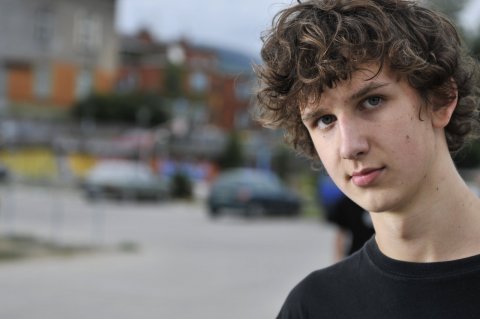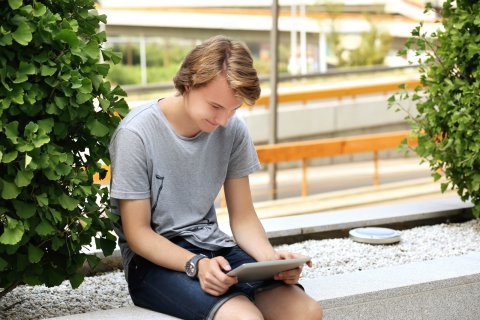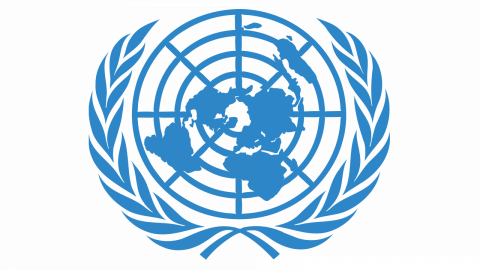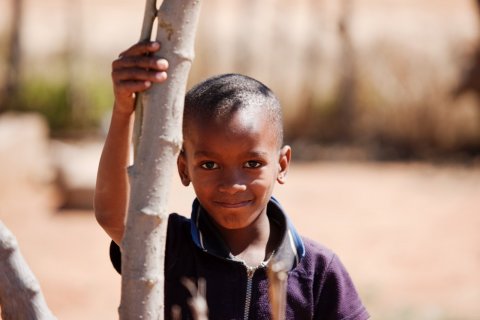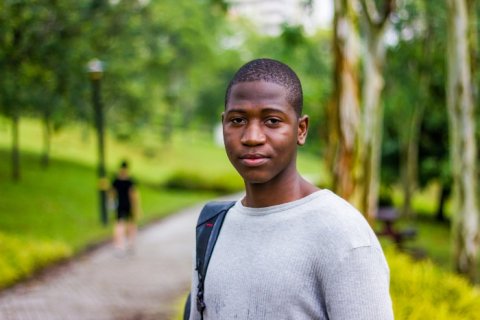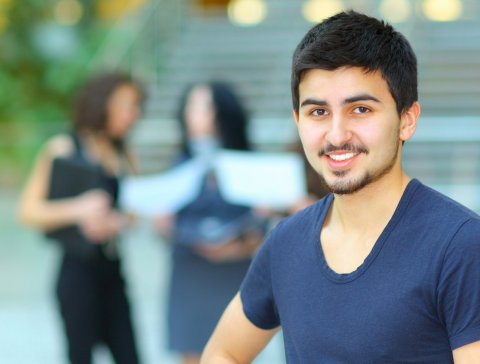News
Manchester Metropolitan University, in collaboration with the Alliance for Youth Justice (AYJ), has developed a series of reports to analyse the unprecedented implications of the COVID-19 health crisis on has had on all stages that make up the juvenile justice system in England and Wales. This initiative has been published over time, with the last of the documents appearing recently.
The International Juvenile Justice Observatory states its support for the prohibition of corporal punishment and for the great work that is being carried out by the Global Initiative to End All Corporal Punishment of Children, which is part of the Global Partnership and Fund for End Violence Against Children. A wide range of activities are carried out through this initiative, specifically designed to catalyse progress towards the universal prohibition and elimination of corporal punishment towards children.
The European Union Agency for Fundamental Human Rights (FRA), the Council of Europe and the European Court of Human Rights have published the second edition of the ‘Handbook on European law relating to the rights of the child’.
Strategy for the Rights of the Child (2022-2027) of the Council of Europe took place in Rome, organised by the Council along with the Italian Presidency of the Committee of Ministers.
This new strategy lays out six primary objectives, one of which is “child-friendly justice for all children”. The strategy breaks down a series of key challenges and measures with respect to this objective, both to successfully implement the current standards and to foster new advances in child-friendly justice. Similarly, it also focuses on ways to facilitate the participation of children themselves in this process.
The launch event represented a valuable opportunity for numerous high-level representatives of EU Member States and of other international organisations to express their commitment to the Strategy, additionally introducing their respective visions with respect to the implementation of the rights of the child in the next six years.
Among the participants there were Ombudspersons, civil society representatives and international experts in this field, as well as young people from different member states of the Council of Europe who had contributed to the preparation of the Strategy.
In view of the escalating armed conflict in Ukraine, the Special Representatives of the Secretary-General for Children and Armed Conflict, Virginia Gamba, and on Violence against Children, Dr Najat Maalla M’jid, released a Join Statement on 25th February reminding all parties involved in the conflict, whether operating inside Ukraine or in its vicinity, that the protection of civilians must be their first priority. As such, the 7.5 million children in Ukraine must be protected from the harms of conflict and the UN Officials emphasize that under no circumstances should children be recruited or used in armed conflict.
“As military operations are ongoing, all principles of international humanitarian and human rights law must be applied, including those on proportionality and discrimination in the targeting and carrying out of operations. We call on all parties to refrain from attacking civilian infrastructures, especially those impacting children – this includes schools and medical facilities as well as water and sanitation systems.”
“Negotiated peace must continue to be the objective over any military solution to the crisis for children to be spared from the horrors of armed…
The Inter-American Training Program of the Interamerican Children’s Institute (IIN-OEA) opened on the 14th of February the call for applications for those who wish to apply for the courses of the first semester of 2022. The courses, most of them in Spanish, are aimed at professionals from different areas of expertise who are interested in the following topics:
Introduction to Child Rights.
Promotion of Child Participation in the Americas.
Child Rights and the Media.
Adolescents in conflict with criminal law.
Promotion, Protection, and Fulfilment of the Rights of Children and Adolescents whose Parents are incarcerated.
The online application form and further information can be found here.
The Inter-American Training Program (PIC) is a training unit of the IIN - OAS that aims to strengthen the capacities of States and organised civil society, through the development of training processes in different modalities on various thematic contents, in order to advance towards the promotion of child rights and the eradication of all form of violation, deepening a Culture of Rights.
On the 18th of January, the Office of the Special Representative of the Secretary-General for Children and Armed Conflict published a comprehensive study which analyses in a holistic manner the challenges, opportunities and successes in delivering the mandate since its creation in 1996.
The study presents the evolution of the mandate since its inception with the adoption of Resolution 51/77 on behalf of the General Assembly in 1996. Extensive consultancies have been conducted with Member States, UN entities, and civil society organisations throughout 2021 to support and inform the development of the study.
Virginia Gamba, Special Representative of the Secretary-General for Children and Armed Conflict, highlighted that this organisation has “come a long way since the establishment of the Children and Armed Conflict mandate 25 years ago. Understanding how the mandate has evolved and how it has been implemented over the years can help the international community to better prepare itself for the next 25 years, whilst providing an opportunity to renew our commitment to the protection of children from armed conflict and the prevention of grave violations.”
Finally, to point out…
On the 2nd December, the Youth Justice Board (YJB), an entity responsible for overseeing the youth justice system in England and Wales, published a series of materials whose aim is to understand how racial disparity affects children and young people both in their early years and within the youth justice system.
This publication, updated from 2020, pulls together a wide range of verified data to shed light on these disparities which affect children and young people in their formative years, in areas such as health, education, and interaction with the police, placing particular emphasis on the youth justice system. These materials include a three-page infographic which summarises some of the main findings, a Prezi presentation with an audio recording from the YJB youth ambassador, an accessible version of the presentation, and blog by the YJB Chair, Keith Fraser.
The LA Child project publishes guidelines to improve legal aid for children in conflict with the law
In the past month of October, the LA Child project published guidelines on legal aid for children in conflict with the law, which offer a series of recommendations and best practices aimed at supporting the work of professionals who have an impact on legal assistance for young people throughout the EU.
In the words of Benoît Van Keirsbilck, member of the UN Committee on the Rights of the Child and director of Defence for Children International Belgium, this guide “demonstrates sufficiently that one does not improvise oneself as a ‘child´s lawyer’ and that this function is certainly much more complex than many other services provided by lawyers.”
Different civil society organisations continue to collect information in order to learn about actions that are being implemented by juvenile justice systems in Latin America in the context of the COVID-19 pandemic. This is being carried out using two types of questionnaire adapted to the current situation: one aimed at the directors of detention centres, and the other directed at the operating authorities in the juvenile justice systems of different jurisdictions. The entities that have promoted this initiative are the United Nations Latin American Institute for the Prevention of Crime and the Treatment of Offenders (ILANUD); the Northwestern School of Law; Defence for Children International – Americas Region (DNI-Américas); Juvenile Justice Advocates; and Fair Trials.
Through this project, the organisations listed above are seeking the opportunity to share good practices at both a regional and national level within this area, systematising the information acquired via these questionnaires by country and publishing it through the Record of Practices Implemented by Juvenile Justice Systems in Latin America.
This initiative builds on the one undertaken in May 2020, when the…


